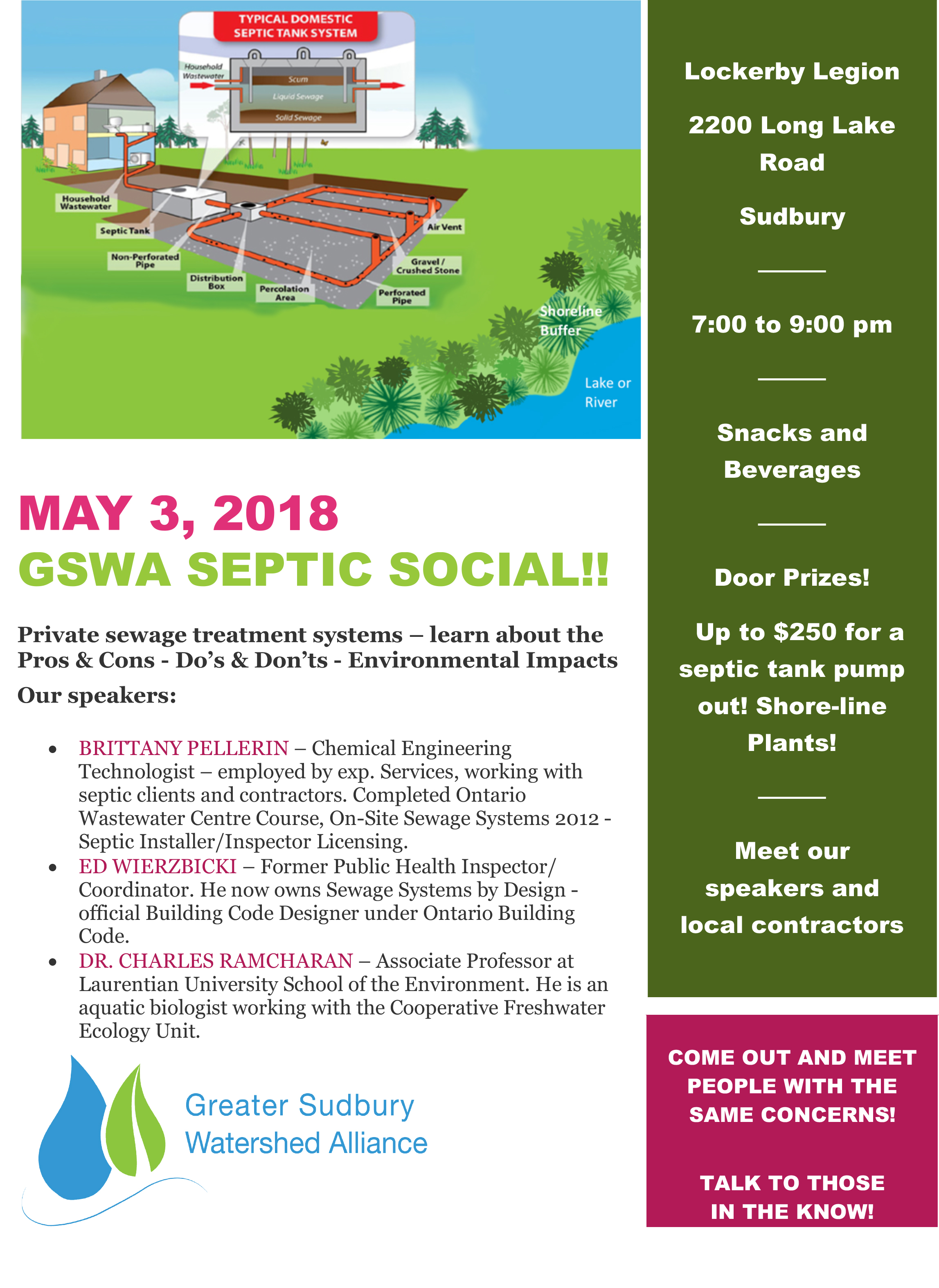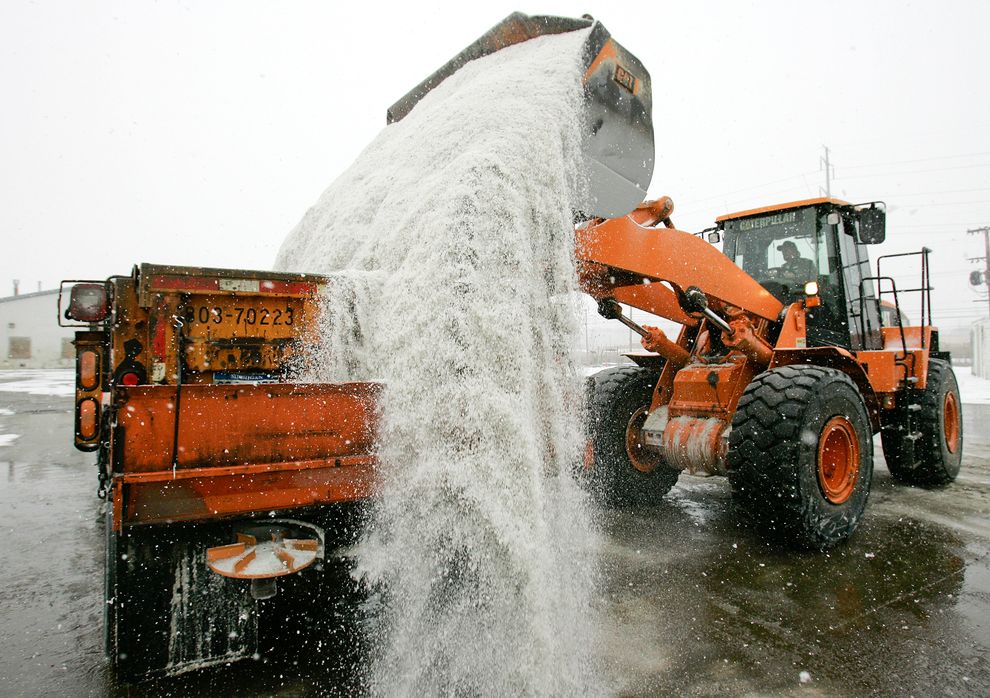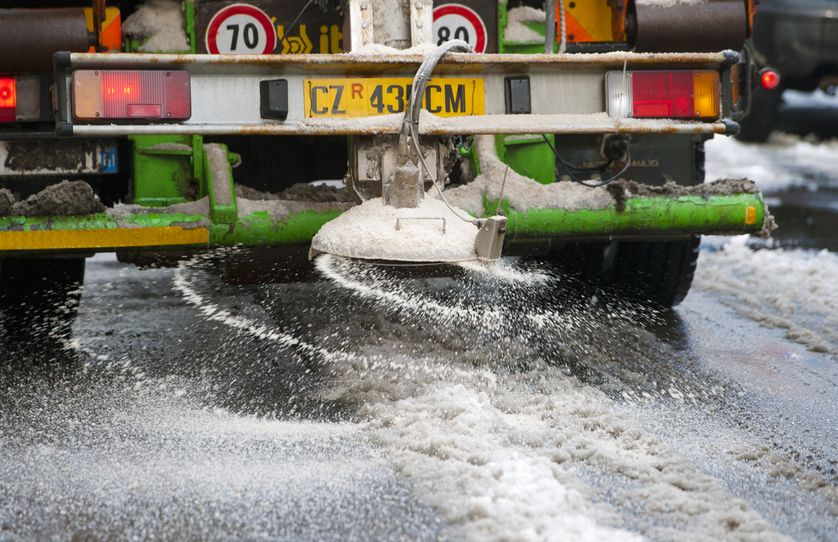Coverage on Media Release:
Winter road salt slowly killing a lake, by Marc Montgomery, RCI – Radio Canada
MEDIA RELEASE – For Immediate Release: 10 April 2018
GSWA Road Salt Discussion – Summary Report
SUDBURY – The Greater Sudbury Watershed Alliance (GSWA) is pleased to announce the release of its Road Salt Discussion – Summary Report (Summary Report), resulting from the Road Salt Discussion event held on 5 February 2018, at the Vale Living with Lakes Centre. This Summary Report is derived from a transcript of the event, and provides a comprehensive overview of the key concerns, comments, and potential solutions presented at the event to address the growing road salt dilemma. Read more →
A presentation made at the GSWA General Meeting on Monday, 9 April 2018 – by Sheri Johnson and Linda Heron:
For Immediate Release: 30 January 2018
SUDBURY – The Greater Sudbury Watershed Alliance (GSWA) is hosting a Panel Discussion on Road Salt on 5 February 2018, 7:00 pm, at the Vale Living with Lakes Center, 935 Ramsey Lake Road. The public is invited to this open forum to learn more about the growing problem of road salt entering into our freshwater lakes, rivers and aquifers.
Increasing sodium and chloride levels from road salt is a cause for concern, especially in water bodies that are sources of our drinking water.
Scientists and municipalities across North America are struggling to find solutions to the problem of chloride and sodium used to de-ice paved surfaces. There are few mitigation methods, and currently there is no practical way to remove salt from our drinking water, or the environment.
Our particular concern with respect to the above noted applications is the establishment of large hard surface parking areas within the Ramsey Lake Watershed, the source of drinking water for over 50,000 City residents. Such a large parking area will require winter maintenance that will undoubtedly result in a significant increase in sodium and chloride concentrations in Ramsey Lake, which has already increased by approximately 60 percent since 1990.
Council cannot ignore water and wastewater infrastructure demands. Citizens may not see the direct harmful effects of ignoring necessary upgrades and maintenance but we will all eventually see the harmful effects to our environment and our quality of life.


